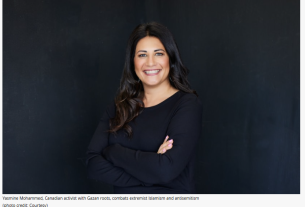A Nigerian man, Rasheed Dimeji Ismail, is at the center of growing controversy over Ireland’s increasingly forceful deportation policy, after being separated from his wife and three daughters—who were spared deportation at the last minute due to credible threats of female genital mutilation (FGM).
Ismail, 43, was deported on a chartered flight to Nigeria last week, part of a state operation that removed 35 Nigerian nationals from Ireland. He has since launched a legal challenge, arguing that his deportation contradicts the State’s own recognition of the dangers his family would face if returned.
“I’ve never missed one week with my children. I was always with them—or on the phone if I couldn’t be,” Rasheed said in a Zoom call from Nigeria. “Now I’ve been torn away from them because of politics, not justice.”
A community leader in Clondalkin, Dublin, Rasheed chaired the Clondalkin Global Garden, a multicultural volunteer initiative. He was also a guest at an event at Áras an Uachtaráin last year honoring community volunteers. His wife, Basirat, and their daughters, aged 13, 10, and 7, remain in Ireland under medical and legal duress—Basirat is undergoing hospital treatment for a respiratory condition and is reportedly unable to care for the children alone.
The family was nearly deported in full, but a last-minute court injunction halted the process for the mother and daughters. Rasheed, however, was removed as his solicitor could not file in time.
His legal team argues that the deportation violates both Irish immigration law and international protection protocols.
“He’s now a target in Nigeria because of his stance against FGM,” said solicitor Faisal Sadiq Khan, who represents Ismail. “This family is being punished for seeking safety.”
Despite these concerns, Justice Minister Jim O’Callaghan defended the mass deportation as part of a rules-based immigration system.
“There are consequences for those who remain without permission,” O’Callaghan said, citing the government’s duty to enforce immigration law and protect the integrity of the system.
The 35 people deported, including children in family groups, were removed aboard a chartered flight—the third such operation in 2025. The Department of Justice confirmed the flight made an unscheduled stop due to a medical issue but eventually landed safely in Nigeria.
Since February, charter flights have deported 106 individuals, with another 77 people removed via commercial flights or voluntary return. The Justice Department has signaled that further charter operations are planned, reflecting a stepped-up approach to immigration enforcement.
Rights groups and community advocates say these deportations, especially of integrated residents like Rasheed, are being driven more by political pressure and far-right protests than by legal necessity.
“We’re being made scapegoats,” Rasheed said. “I was working, my wife was working, my children were thriving in school. We contributed. We are human.”
Legal efforts are now focused on securing Rasheed’s return either through his wife’s ongoing residence application or by reversing the deportation due to its procedural and humanitarian flaws.
As Ireland grapples with rising anti-immigration sentiment and a tightening asylum regime, Rasheed Ismail’s case has become a flashpoint, raising critical questions about compassion, consistency, and the human cost of deportation policy.



